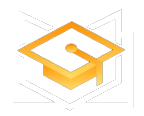The rise of remote work has opened up new opportunities for job seekers worldwide, including non-graduate immigrants in Germany.
Applying for remote jobs requires a unique approach to stand out in the digital landscape. Here are some essential tips to help you navigate the remote job application process effectively.
Understand the Remote Work Landscape
Before you start applying, it’s important to understand the remote work environment. Remote jobs can range from customer service and virtual assistance to programming and digital marketing. Identify which roles align with your skills and interests.
Step 1: Assess Your Skills and Strengths
Begin by evaluating your skills and strengths. Make a list of your hard skills (e.g., programming, writing, data analysis) and soft skills (e.g., communication, time management, problem-solving). Understanding your strengths will help you target the right remote job opportunities.
Step 2: Build a Strong Online Presence
Your online presence is crucial when applying for remote jobs. Employers often check candidates’ online profiles to gauge their professionalism and expertise.
- LinkedIn Profile: Create or update your LinkedIn profile. Highlight your skills, work experience, and any relevant projects. Join LinkedIn groups related to your industry to network and learn about job openings.
- Personal Website: Create a personal website for yourself or a portfolio where you showcase your past and present work. There are even websites that offer you free websites, e.g. Blogger.com. This is particularly useful for creative roles like graphic design, writing, or web development.
Step 3: Craft a Tailored Resume and Cover Letter
Your resume and cover letter should be tailored to each job you apply for. Emphasize your relevant experience and skills.
- Resume: Use a clean, professional format. Highlight your remote work experience (if any) and the skills that make you a suitable candidate for remote work, such as self-motivation and time management.
- Cover Letter: This covers the requirements specific for the job. Make sure to explain why you’re interested in the role and how your skills and experience make you a perfect fit.
Step 4: Leverage Job Search Platforms
There are many websites that lists a lot of remote jobs. Some of the popular ones include:
- Remote.co: Which offers a wide range of remote job listings across the globe and in various fields or industries.
- We Work Remotely: Focuses on remote job opportunities in tech, marketing, customer support, and more.
- FlexJobs: A subscription-based service that curates remote job listings and provides additional resources for job seekers.
Step 5: Network Virtually
Networking is as important in the remote job market as it is in traditional job hunting.
- Online Communities: You should join online communities and forums that are related to your industry of interest. Participate in discussions, interact with members and professionals in the industry, and share your knowledge.
- Virtual Events: Attend virtual conferences, webinars, and workshops. These events provide opportunities to learn and network with potential employers and peers.
Step 6: Prepare for Virtual Interviews
If your application is successful, you’ll likely be invited for a virtual interview. Prepare by:
- Testing Your Technology: Ensure your internet connection, webcam, and microphone are working correctly.
- Creating a Professional Environment: Choose a quiet, well-lit space for your interview. Minimize background noise and distractions.
- Practicing Common Interview Questions: Be ready to discuss your experience, skills, and why you’re suited for remote work. Practice answering questions confidently and clearly.
Step 7: Highlight Your Remote Work Skills
During the interview, emphasize skills that are particularly valuable for remote work, such as:
- Self-Motivation: Explain how you stay productive and motivated without direct supervision.
- Communication: Discuss your ability to communicate effectively through email, chat, and video calls.
- Time Management: Share your strategies for managing your time and meeting deadlines.
Step 8: Understand Remote Work Tools
Familiarize yourself with tools commonly used in remote work environments, such as:
- Project Management Tools: Trello, Asana, and Monday.com.
- Communication Tools: Slack, Microsoft Teams, and Zoom.
- Time Tracking Tools: Toggl, Harvest, and Clockify.
Step 9: Follow Up
After the interview, send a follow-up email to thank the interviewer and reiterate your interest in the position. This not only shows professionalism but also keeps you top of mind.
Conclusion
Applying for remote jobs as a non-graduate immigrant in Germany can be a rewarding endeavor with the right preparation and approach.
By building a strong online presence, tailoring your application materials, and leveraging networking opportunities, you can enhance your chances of securing a remote position. Stay persistent, keep learning, and embrace the flexibility and opportunities that remote work offers.



